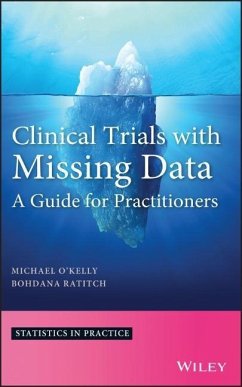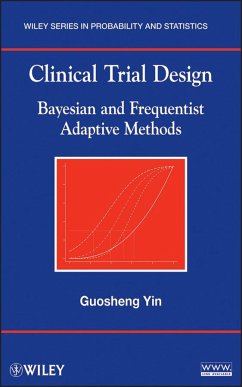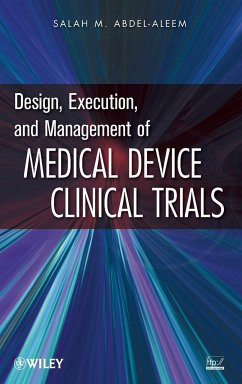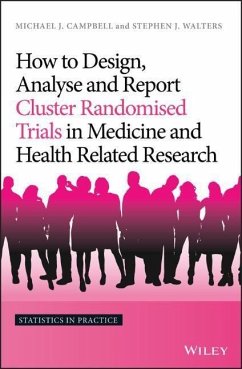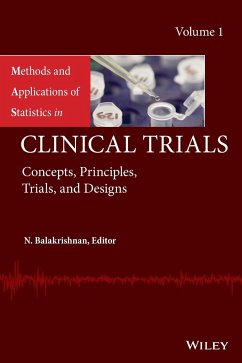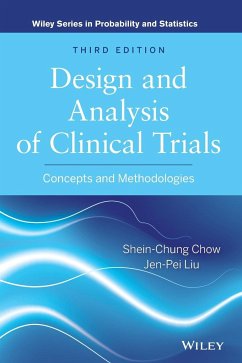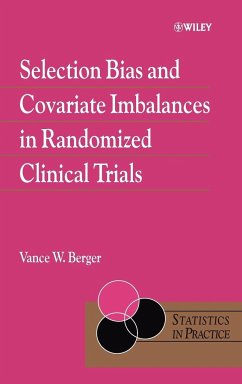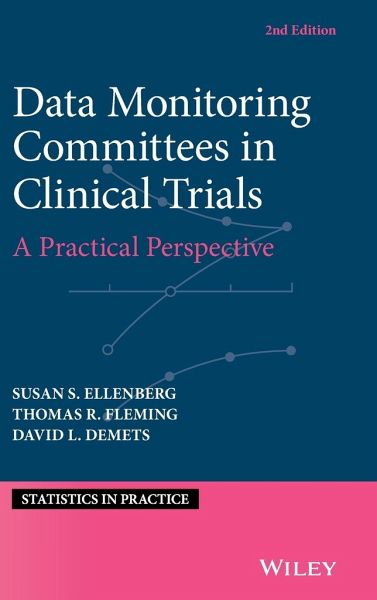
Data Monitoring Committees in Clinical Trials
A Practical Perspective
Versandkostenfrei!
Versandfertig in über 4 Wochen
109,99 €
inkl. MwSt.
Weitere Ausgaben:

PAYBACK Punkte
55 °P sammeln!
Data Monitoring in Clinical Trial: A Practical Perspective ist die erweiterte 2. Auflage des weit verbreiteten und viel beachteten Fachbuchs, das erstmals im Jahr 2002 erschienen ist. Es bietet einen fundierten und aktuellen Überblick über Datenkontrollkomitees, deren Einrichtung, Zweck und Zuständigkeiten.- Enthält direkt umsetzbare Handreichungen für alle, die klinische Studien verwalten und durchführen, sowie für Mitglieder von Datenkontrollkomitees.- Liefert Mitgliedern von Behörden- und Ethikkommissionen Einblicke in die Kontrolle klinischer Daten.- Diskutiert Themen mit Relevanz ...
Data Monitoring in Clinical Trial: A Practical Perspective ist die erweiterte 2. Auflage des weit verbreiteten und viel beachteten Fachbuchs, das erstmals im Jahr 2002 erschienen ist. Es bietet einen fundierten und aktuellen Überblick über Datenkontrollkomitees, deren Einrichtung, Zweck und Zuständigkeiten.
- Enthält direkt umsetzbare Handreichungen für alle, die klinische Studien verwalten und durchführen, sowie für Mitglieder von Datenkontrollkomitees.
- Liefert Mitgliedern von Behörden- und Ethikkommissionen Einblicke in die Kontrolle klinischer Daten.
- Diskutiert Themen mit Relevanz für diejenigen, die in den USA und in Europa an klinischen Studien arbeiten.
Die praktischen Handlungsansätze in diesem Buch sind für Experten aus dem akademischen Bereich, bei Regierungsstellen und aus der Industrie, vor allem für Medizinstatistiker, Kliniker, Koordinatoren von klinischen Studien von Nutzen, ob sie Studien durchführen und/oder begleiten. Ebenso relevant istdieses Praktikerbuch für Mitarbeiter bei Regulierungsstellen und im Bereich der Bioethik.
- Enthält direkt umsetzbare Handreichungen für alle, die klinische Studien verwalten und durchführen, sowie für Mitglieder von Datenkontrollkomitees.
- Liefert Mitgliedern von Behörden- und Ethikkommissionen Einblicke in die Kontrolle klinischer Daten.
- Diskutiert Themen mit Relevanz für diejenigen, die in den USA und in Europa an klinischen Studien arbeiten.
Die praktischen Handlungsansätze in diesem Buch sind für Experten aus dem akademischen Bereich, bei Regierungsstellen und aus der Industrie, vor allem für Medizinstatistiker, Kliniker, Koordinatoren von klinischen Studien von Nutzen, ob sie Studien durchführen und/oder begleiten. Ebenso relevant istdieses Praktikerbuch für Mitarbeiter bei Regulierungsstellen und im Bereich der Bioethik.




